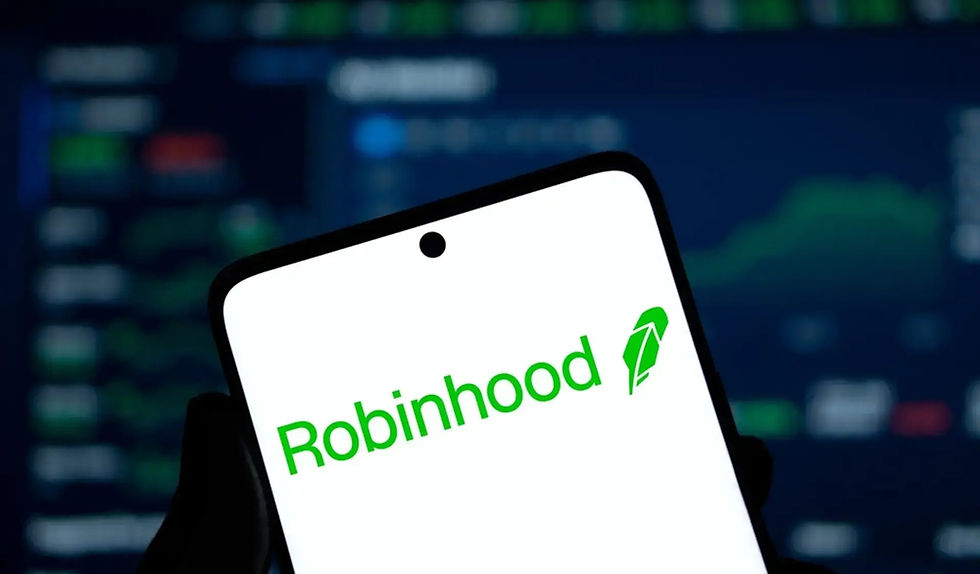Robinhood’s Tokenization Push Threatens Traditional Exchanges
- Gator

- Jul 5
- 2 min read

Introduction
Robinhood’s bold move to tokenize stocks on its new Ethereum-compatible blockchain, dubbed Robinhood Chain, could disrupt traditional financial markets by diverting liquidity from major exchanges like the New York Stock Exchange (NYSE). Unveiled at the EthCC conference, this initiative enables 24/7 trading of tokenized stock derivatives, challenging the concentrated trading volumes that fuel legacy exchanges. As blockchain technology merges with traditional finance, Robinhood’s strategy raises questions about the future of market structures. This article explores the mechanics of Robinhood’s plan, its potential impact, and the challenges ahead.
Robinhood Chain: A New Trading Paradigm
Robinhood Chain, built on Arbitrum’s Orbit framework, allows users to trade tokenized derivatives of U.S. stocks and ETFs, offering near-instant settlement and 24/5 trading outside traditional market hours. A proprietary token engine creates these assets, held by a U.S. broker-dealer, enabling self-custody or interaction with decentralized applications (dApps). Currently live in Europe, the platform supports over 200 tokenized assets, with plans to migrate to a custom layer-2 blockchain for enhanced scalability. This move aims to blend crypto’s accessibility with traditional equities, redefining retail trading.
Liquidity Threat to NYSE and Traditional Exchanges
Galaxy Digital warns that Robinhood’s tokenization could siphon trading volume from the NYSE, undermining its core revenues from fees and market data. By moving assets onchain, Robinhood bypasses traditional market channels, challenging the liquidity concentration that gives exchanges like the NYSE their edge. Analysts suggest that tokenized assets’ programmability and round-the-clock access could attract traders, potentiallyECCENTRICECCENTRIC particularly younger demographics seeking flexible trading hours. This shift risks reducing legacy exchanges to mere custodians if they fail to adapt.
Controversies and Regulatory Hurdles
Robinhood’s tokenization efforts have sparked debate, especially after backlash over its tokenized OpenAI and SpaceX offerings, which OpenAI clarified were not actual equity. Critics, including Elon Musk, labeled these tokens “fake,” highlighting their indirect exposure via special purpose vehicles. Regulatory uncertainty in the U.S. remains a challenge, with tokenized assets requiring SEC approval, as seen with Coinbase’s similar pursuits. In Europe, less stringent rules have allowed Robinhood’s rollout, but U.S. expansion hinges on navigating complex compliance landscapes.
Opportunities and Risks for the Crypto Market
The tokenization trend could bridge crypto and traditional finance, potentially boosting Ethereum’s role as a backbone for tokenized assets. However, critics like Securitize’s CEO argue that multiple “wrapper” models may fragment liquidity, potentially diverting capital from altcoins to high-performing tokenized stocks. While Robinhood’s initiative offers faster settlements and lower costs, volatility and thin liquidity in tokenized markets pose risks for retail investors. The success of this model depends on capturing sufficient liquidity to rival traditional exchanges.
Conclusion: A Transformative Shift in Finance
Robinhood’s tokenization of stocks on its Ethereum-compatible blockchain signals a potential revolution in financial markets, challenging the NYSE’s dominance with 24/7 trading and onchain utility. While offering retail investors unprecedented access, the initiative faces regulatory and liquidity challenges. As platforms like Robinhood and Coinbase push tokenized assets, the convergence of crypto and traditional finance could redefine trading. The industry’s ability to balance innovation with stability will determine whether this shift uplifts or disrupts the broader market landscape.





Comments